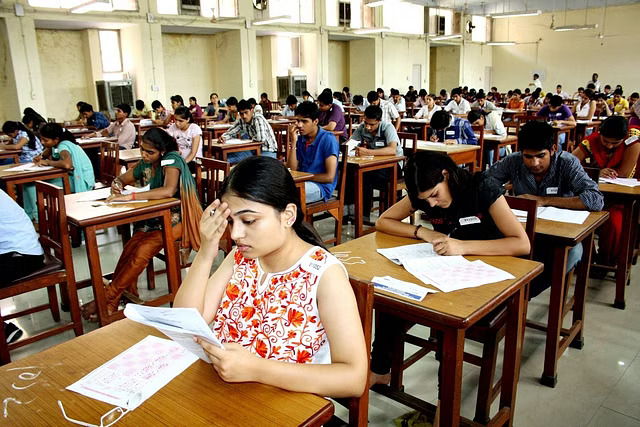In 2024, irregularities in the National Eligibility cum Entrance Test (NEET) have now spread to Maharashtra. This issue is no longer confined to instances of paper leaks in Bihar, Jharkhand, and Gujarat states alone. Maharashtra’s Anti-Terrorism Squad (ATS) has identified four suspects implicated in allegations of compromising the integrity of the exam. These accused allegedly extorted large sums from at least 12 candidates.
Identification and arrests of the accused:
Three of the suspects are employees of the Maharashtra State Education Department, while the fourth, Gangadhar Munde, a resident of Maharashtra currently near Gurgaon, Delhi. The ATS has arrested Jalil Khan Umar Khan Pathan (34), principal of a district council school in Katpur village, Latur district, and Sanjay Jadhav (40), a teacher at a district council school in Madha taluka, Solapur district. Both are held in police custody until July 2nd.
Status of other suspects:
The police have yet to arrest the third Maharashtra resident suspect, Iranna Kongalwar, an employee of the state-run Industrial Training Institute (ITI) in Umarga, Osmanabad district, and Munde, residing in Gurgaon. Munde’s link to the NEET-UG scam in Maharashtra considers him a mastermind.
Suspicious activities and evidence:
Pathan and Jadhav had photos of NEET-UG hall tickets from at least 12 students on their mobile phones, along with several incriminating messages sent to Kongalwar and Munde. The investigation team also seized bank passbooks from both suspects, showing large transactions into Kongalwar and Munde’s bank accounts.
Marathi daily ‘Divya Marathi’ reported that Pathan’s wife’s bank account recorded transactions exceeding ₹700,000. The report also mentioned Pathan owning residential property worth ₹10 million in Udgir city, with no sightings of his family members since the arrests.
Modus operandi of the accused:
Reports suggest Pathan targeted students willing to achieve high scores through illicit means. He demanded ₹500,000 from students to increase their NEET UG scores. After receiving an initial payment of ₹50,000, he sent photos of hall tickets to school teacher Jadhav. Jadhav forwarded these messages via WhatsApp to ITI teacher Kongalwar, who then sent them to Munde in Gurgaon, where the National Testing Agency (NTA) conducts NEET UG and various other entrance exams.
Interviews with parents and students:
The investigation team also questioned the parents of the 12 students whose hall ticket photos the suspects had in their possession. According to their responses, the accused promised to increase their children’s scores by more than 550, in exchange for payments ranging from ₹400,000 to ₹500,000. It’s possible to score up to 720 points in the exam.
Network of accused in Latur:
Pathan, Jadhav, and Kongalwar all resided in Latur city. Residents of Takli Temburni village, where Jadhav was stationed, told Marathi news channel ABP Majha that Jadhav rarely attended school and operated private coaching classes in Latur city, potentially in partnership with Pathan and Kongalwar.
Latur: A major coaching hub
Latur, situated in Maharashtra’s Marathwada region, functions as a key coaching center for local students aiming to excel in exams like NEET UG and Joint Entrance Examination (JEE). According to Saam TV’s report, the state government has implicated the four suspects in misconduct across multiple educational entrance tests in recent years, raising broader concerns about the integrity of educational assessments in the region.
Conclusion:
This incident underscores profound concerns about the integrity of our education system and prompts urgent discussions on preventing such irregularities. It is imperative for all departments to unite in implementing rigorous measures that ensure transparency and fairness in examinations. By doing so, we can establish a robust educational framework that safeguards our nation’s future, fostering an environment where meritocracy thrives and opportunities are equitable for all.
ALSO READ: How did the British army, using Indian soldiers, manage to defeat the larger Indian armies?
